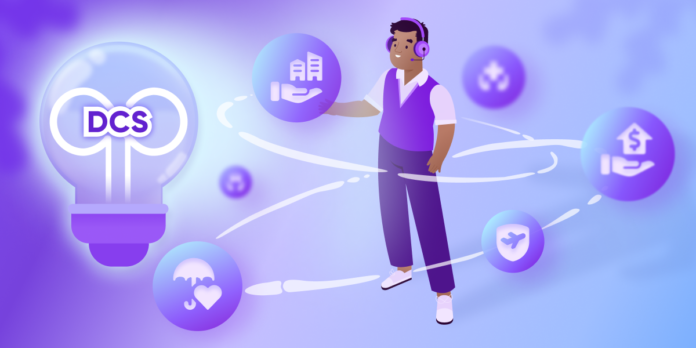Why Digital Customer Service Should Be a Priority at Insurance Companies
Every insurance company is on its own digital transformation journey, and for each organization, IT leaders and business process owners are tasked with figuring out the most efficient and effective way to expedite the journey. It’s challenging for IT departments who are constantly juggling project priorities and resources.
At any given time, an insurance company may be considering dozens of digital transformation initiatives that range from must haves to nice-to-haves. Projects that will save the company money to projects that will allow for much-needed scalability and agility to projects that will improve the end user experience.
Deciding how to ultimately prioritize those intiatives is an unenviable task. Each project must be weighed against the time it will take to implement, the cost and the ultimate benefit to the company.
What if there was a solution out there that could be implemented quickly, save the company money while enhancing the policyholder or agent/broker experience? Sounds too good to be true, right? A Digital Customer Service (DCS) platform can do just that and be a win-win-win for your insurance company.
Enhanced policyholder experience
There’s nothing more frustrating as a consumer than searching for something on a company’s website, asking for help in chat, to ultimately be forced to dial-in to a 1-800 number and re-explain the problem all over again after waiting on hold. It’s certainly not a service experience that promotes customer loyalty and retention. It’s equally frustrating for an agent /broker needing assistance during a time-sensitive quoting process.
With DCS, insurers can keep an engagement entirely on-screen, where the interaction started. A policyholder or agent/broker can seamlessly transition from chat to OnScreen Voice or Video, rather than having to dial into a call center to engage with a different rep.
As insurance companies roll out new digital portals and self-service features on their web and mobile applications, aligning the service experience to be entirely digital makes sense. And the results have been extremely positive among policyholders and agents. Other insurance companies who have deployed Glia’s Digital Customer Service platform have seen 15 to 25 percent increases in CSAT and NPS. With agents/brokers, DCS is a great way to build brand loyalty.
Improved efficiency and cost savings
For insurance organizations, streamlining processes and finding efficiencies is critical to lower operating costs. Implementing a DCS platform has been found to lower the average handle time of service engagements.
Solutions like CoBrowsing, which enables reps to observe and guide policyholders or agents to a resolution directly on their on screen, resolves issues quicker while also educating along the way to avoid them from having to call in for the same question in the future.
Insurers can also streamline service by ensuring the policyholder is directed to the appropriate service rep without going through traditional IVR steps and queues. By moving the engagement online—where the customer already is—rather than having them dial in to a generic phone number on the website you can use business rules based on site location to direct to the appropriate rep.
Speed to market with DCS
When it comes down to prioritizing IT projects, time and cost often reign supreme. More affordable and less time consuming initiatives are more palatable. Yet many insurance companies are all too familiar with digital transformation projects that drag on for multiple years.
When you deploy a new project, you need to be ready to handle the increased volume of questions from policyholders or agents/brokers. Having your DCS solution in place can help you handle increased call traffic with no increase in staffing.
Deploying Digital Customer Service within your organization can be done quickly. Initial launches of Glia can be completed in less than 12 weeks. Other insurers that have implemented Glia have quickly seen the positive impact DCS has within their organization, leading to them rolling out the platform in other parts of the business.
One of the many benefits of a DCS platform like Glia is you can implement it in a portion of your business where you have the most need and then layer it onto other areas of your business over time. A Fortune 100 insurance company has taken this approach and seen tremendous benefits in deploying Glia’s DCS platform in 7 different business areas.





